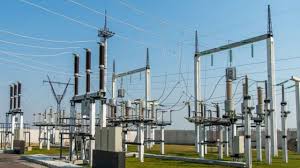
The Central Bank of Nigeria (CBN) had earlier averred that the proposed bank recapitalization would engender the realization of the $1 trillion economy, an ambition President Tinubu plans to achieve within the dispensation. It’s implied that financial system stability and sustainable economic development are anchored on economic size of a country.
In furtherance of the above, a circular was then released in March 28, 2024 stating that the capital raise was to enhance the resilience, solvency and capacity of banks to support the growth of the Nigeria economy.
Therefore, the salient questions that would emanate from the highlighted rationalization are as follows: – Who are the ultimate beneficiaries of the ambitious $1 trillion economic size target?
How cost-effective is this support to the beneficiaries?
How enabling/friendly is the business environment?
How much potential FDI or hot money would be attracted into the recapitalization process as envisaged by some analysts?
The fact of the matter is when there is turbulence in the economy, the enterprise sector is the biggest hit, given the cost barriers and stringent risk acceptance criteria that limit access to conventional funding, which has been the core financing arrangement in the Nigeria financial system.
Gross Domestic Product (GDP) is a measurement yardstick for determining the size/value of any economy, and it’s tied to productivity, which is simply defined as the sum total of the value of economic activities that occur within a given year.
- Therefore, the macroeconomic policies/programmes of countries are not only designed to stimulate an increase in the level of economic activities in order to expand the size of the economy, but also programmed to enhance economic resilience.
- Economic resilience is more fundamental than economic size. While the latter comes with structural buffers driven by strong local investment philosophy, economic size without resilience would always be subject to volatility as both internal & external shocks can easily distort economic stability and unleash tough consequences on the citizenry and enterprise sustainability, if the economy caves in to pressure.
It is against this background that I am compelled to share specific perspectives on the short and long run effects of the recent CBN policy on the financial system, as well as the enterprise sector;
- Crowding out effect: The horse trading for additional capital will slow down risk asset creation/credit expansion to the private sector, and consequently deepen the financing gap of over $13 trillion plaguing the MSME sector, and this is obviously the most vicious bane on National productivity.
Despite the fact that lending to the sector has grown by 42 percent to about N590 billion post-Covid, it remains grossly inadequate for the MSME sector, whose major problem is access to cost-effective finance.
- Opportunity Cost of recapitalization: At the pre-recapitalization level, the cost of capital sourcing which includes, but not limited to mergers & acquisition, internal and external borrowing, IPOs, private placements etc. to meet the new recapitalized limit would force banks to pull back on lending operations to the enterprise sector. To put rather mildly, the opportunity cost of channelling resources to alternative sources would come at the huge expense of asset creation, productivity & job creation.
The post-recapitalization effect will spiral over a medium to long term period with massive opportunity-cost of job losses and severe reduction in the size of loans to MSMEs in particular. Post recapitalization would result in massive re-investment cost associated with system integration, process re-alignments, restructuring etc., that could have been alternatively utilized to enhance lending to the enterprise sector to boost productivity vis a vis economic growth.
- Reduced Appetite for MSME funding in the short- and medium-term period: The danger of big & mega banks is their penchant for big ticket projects. As a matter of fact, the bigger the banks, the bigger the appetite for huge profit (see a snapshot of the 2023 post-tax profits of the four mega banks in Nigeria).
Apparently, mega profits of these sizes as highlighted couldn’t have come from MSME sized tickets. Income from this space are usually supplementary income, but constitutes a significant income source for Micro finance banks and medium-sized banks (unimpaired by losses).
Should CBN decide to validate the above assertion by conducting an assessment to determine the % of MSMEs that actually benefit from bigger banks, compared to the percentage of those that benefit from micro, small and medium sized banking institutions, the result would be in favour of the latter; and the same can be reliably inferred with respect to credit guarantees.
Therefore, the danger of technically forcing the “small & medium sized MSME friendly banks” into the gulag of mega banks under the guise of ‘recreating bigger banks and strengthening the financial system” either via merger or acquisition may be tantamount to endangering the sustainability of MSMEs, which is the backbone of vibrant economies.
It is rather instinctive to accept the hard reality that recapitalized banks with significant post-recapitalization cost in front of them would most likely focus on creating high income generating assets or portfolio with relative cost recovery and timely returns on stakeholders’ investment, which can be largely guaranteed by big ticket transactions.
What then should be the compelling focus of the CBN outside the other aspects of their core mandate:
- Building financial system resilience: Policy initiatives that would incentivize cost-effective lending to MSMEs leveraging Special Credit guarantee schemes, Emerging sector support incentive, direct/indirect incentives for the most MSME friendly banks, tax rebate/concession for small and medium enterprise- friendly banks etc.
- Create enabling environment to attract both private and public capital into the emerging and core sector space. Given the intervening roles of Development finance Institutions (DFIs) in industrialization, there is a compelling need for the CBN to syndicate/encourage more developmental focused institutions to bridge funding gap, support import substitution & export oriented industries, while engendering financial and economic inclusion using development finance interventions in a strategic sense.
- Banks to allocate at least 5% of their profit before/after tax to human capital development that will be subject to periodic audit by the CBN; this suasion can also incentivize.
- The CBN should engage banks to adopt the green energy initiative as an alternative energy response to the high cost of energy challenge, which consumes a significant portion of its top line revenue.
- To reduce potential vulnerability from forex shocks, it will be instinctive to set up the Financial Control Authority (FCA) that will be specifically mandated to monitor activities and trends in the Forex market so as to ensure relative stability in favour of the naira. There is need to review the processes & procedures of the FCA in the UK and other global agencies with similar mandate to have a better understanding of their respective operational dynamics that has helped to check forex racketeering and kept their respective national currencies stable.
Meanwhile, the EFCC has been playing a major role in helping to check the activities of forex racketeers, alleged as prime actors in the artificial manipulation of the naira. As a matter of fact, we are likely to see a more effective action, if a full fledged agency/directorate is set up with a special mandate to drive stability in the forex market and allow the EFCC focus on its primary obligation.
Conclusion/Prayer:
- CBN should pay more attention to the fiscal and monetary parameters that would not only enhance the resilience of banks to grant more friendly credit support to the private sector, but also recreate the macro-economic environment and make it an investment-friendly hub for local and foreign businesses to thrive and add more value to the economy.
- Proactive caution is required to prevent the unintended error of migrating the financial system into the hands of financial cartel, whose risk appetite may not be quite friendly with small businesses- it will be dangerous to stunt the growth of small businesses which is meant to be the engine room of the economy. The easiest way to render a car useless is to knock the engine!
- Adopt the development interventionist strategy of pre-2009, where intervention funds was outsourced to development banks (Bank of Industry/Africa Finance Corporation (AFC) etc, to specifically support special sectors and refinance credits that are potentially challenged due to the high cost of finance. For the avoidance of doubt, the PAIF (Power and Aviation Intervention Fund) and the Refinancing & Restructuring Finance (RRF) under the BOI/AFC management were created for the highlighted purposes. To state the least, great milestones were recorded through these interventions post-2009.
The role of the CBN under the Sanusi-led leadership handled the development finance role of the CBN with more strategic insight by adopting an indirect approach that was subject to systematic monitoring, review & reporting of results for continual improvement.
By
Ike P. George.





